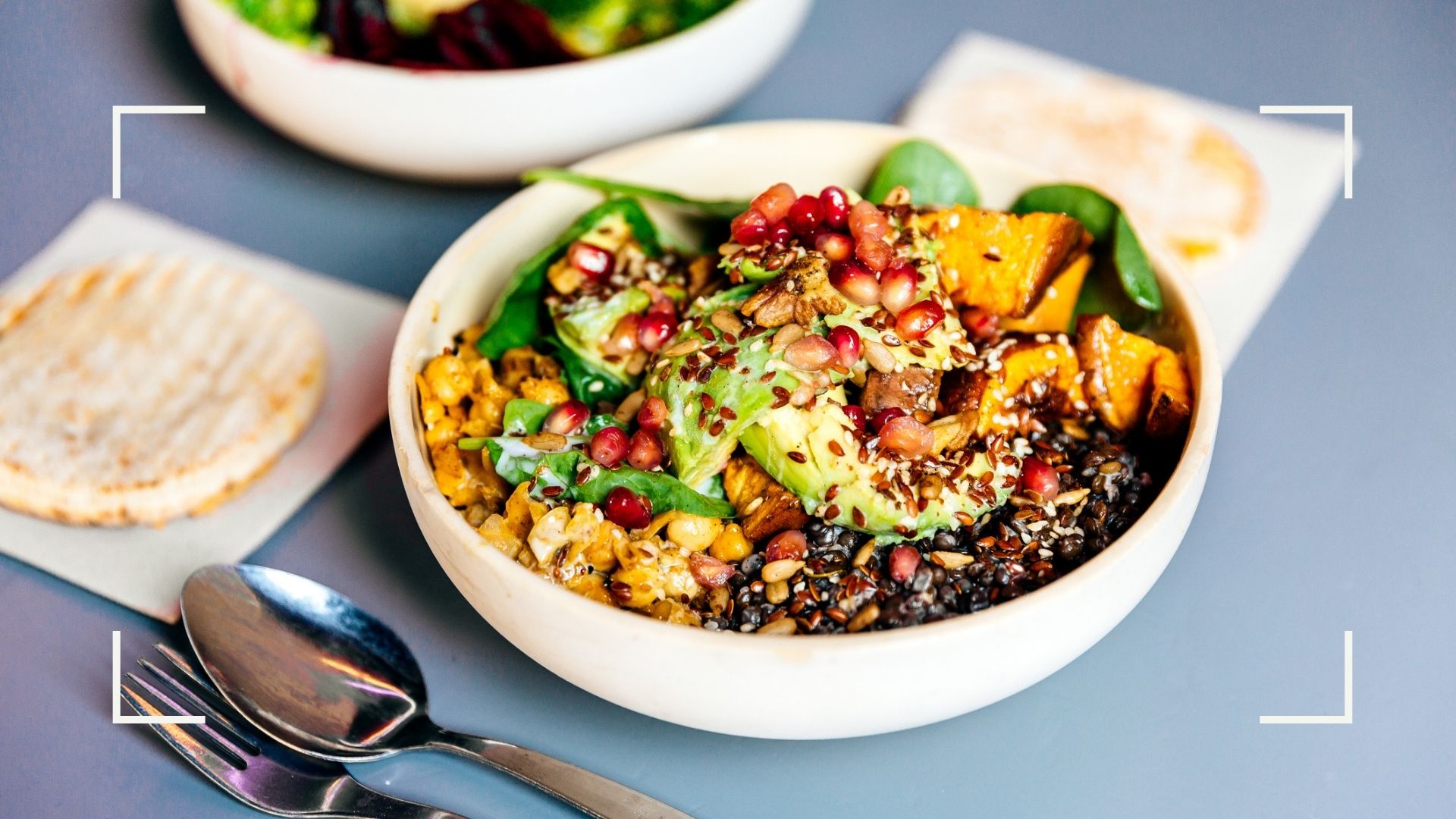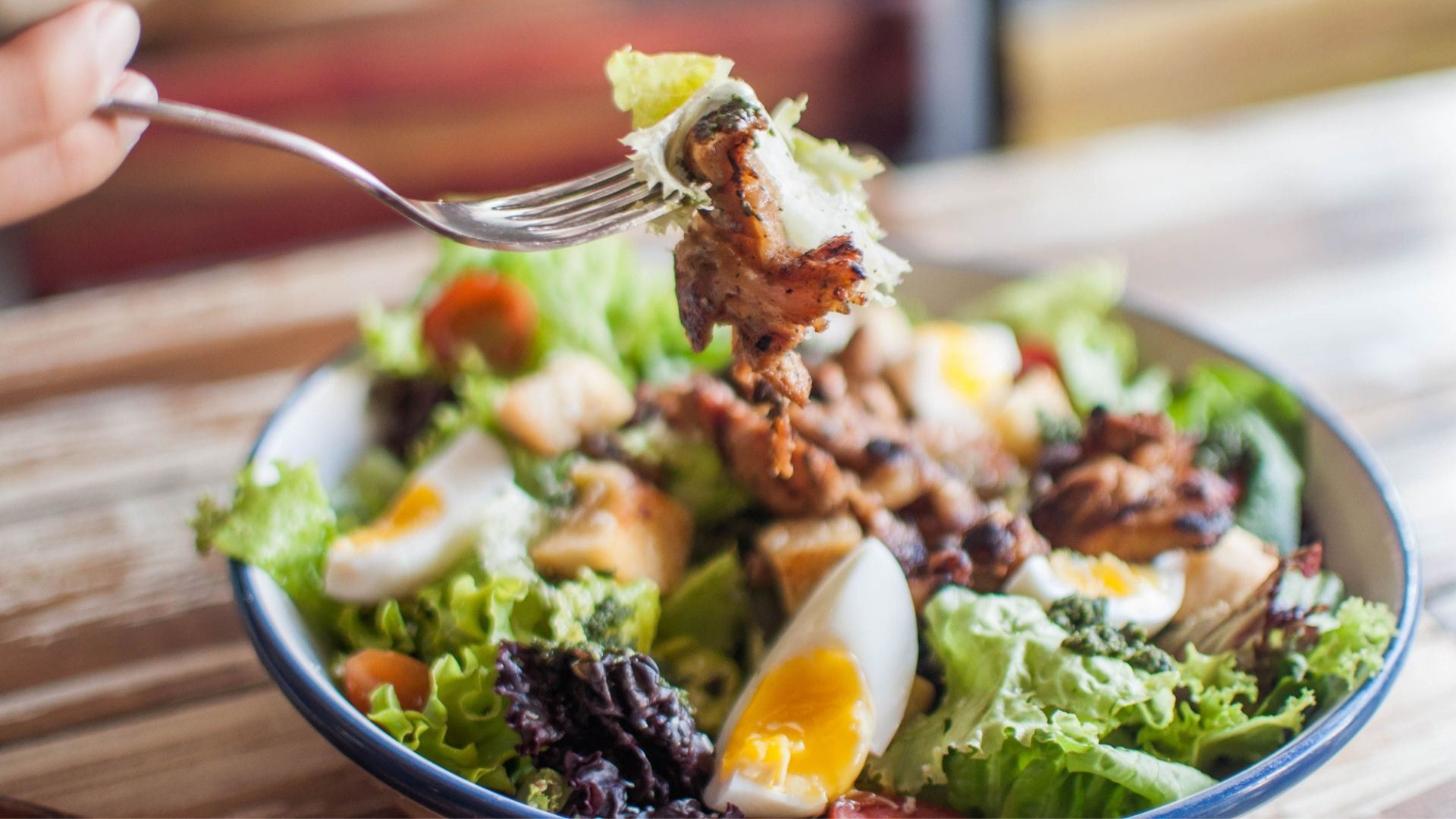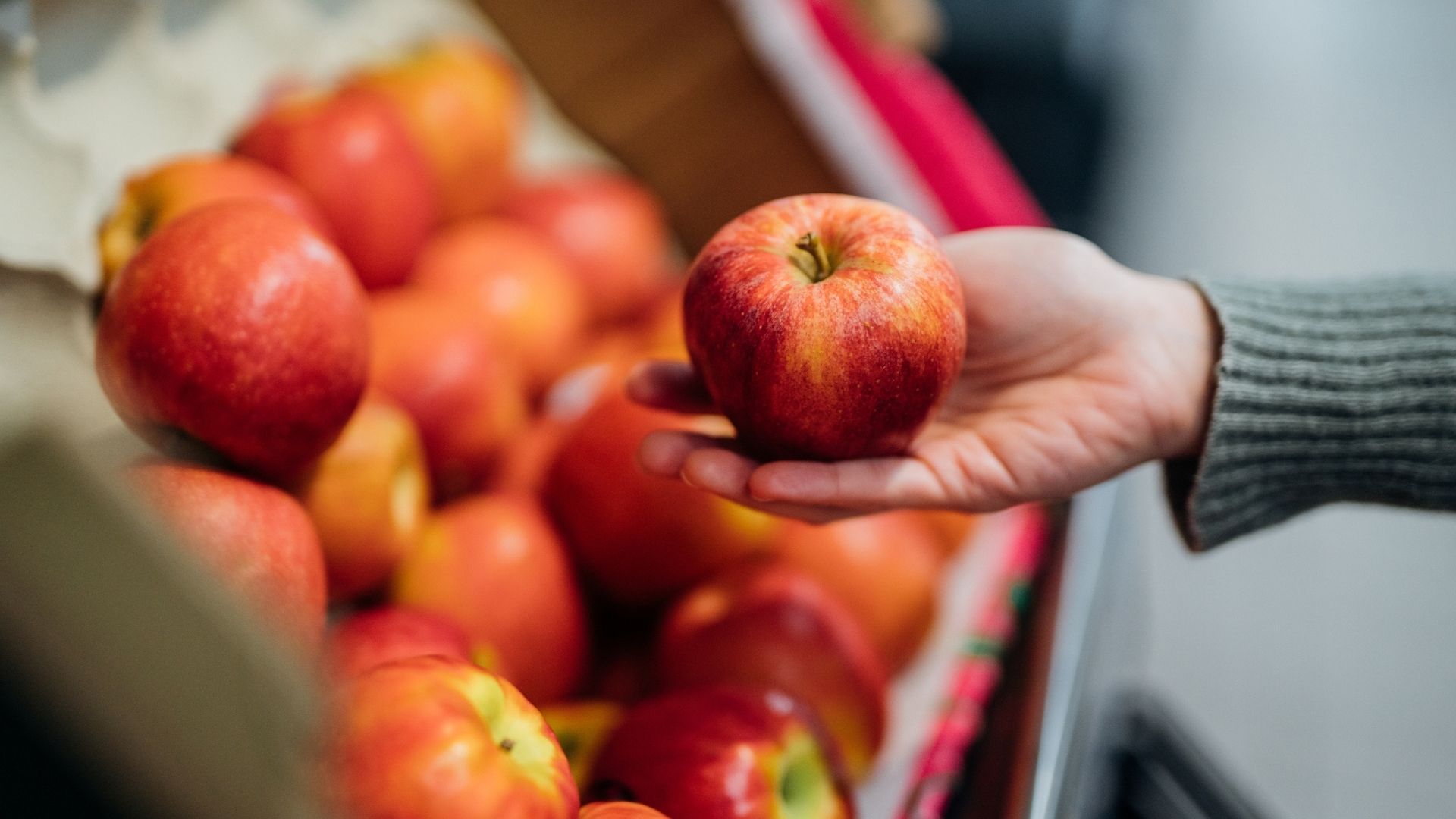Want to know how to eat less? These are the best ways to get a grip on your portions
If you're wondering how to eat less, these science-backed tips could help you achieve your health goals...

Wondering how to eat less? Most of the actions we carry out on a day-to-day basis are the result of automatic, unconscious processes or habits—and it's especially the case with eating.
The good news is that you can work these processes to your advantage, and use them to replace unhealthy food habits, allowing you to improve your diet and boost your overall health.
If you're keen to harness better portion control for weight loss then remember that losing weight in a healthy, sustainable way is a combination of a nutritious diet and regular exercise. So alongside consuming the right amounts of the good stuff, it's also crucial to stay active—which could involve trying Nordic walking if you prefer to be outdoors, or using one of the best workout apps at home.
How to eat less—14 ways to control your portions

1. Eat mindfully
Ever munched your way through a giant box of popcorn at the cinema when you weren't even hungry? Devoured your dinner in front of the television without really tasting it? Well, you're not alone.
"Mindless eating is a modern-day malady," says Rachel Bartholomew, nutrition consultant and co-author of Mindful Eating. "Our hectic lifestyles mean it's all too easy to reach for unhealthy snacks for a quick energy boost, and we're constantly distracted during meals." Eating like this not only reduces our enjoyment of the food we eat, but can lead to overeating, as we fail to pick up on the signs of physical fullness, or to register what we've eaten mentally.
However, mindful eating—that's tuning in to what your body needs—can turn this habit around. "When you find yourself reaching for chocolate or some other treat, pause," advises mindfulness teacher Anna Black. "Acknowledge what is happening without judging. Ask yourself what's driving you to reach for it—boredom? Or is it in response to something that's happened? Noticing your thoughts, emotions and physical sensations will help you focus. You may still eat the chocolate, but it becomes a choice rather than an unconscious, automatic reaction, and sometimes bringing that moment of choice into awareness helps us break a chain of automatic behavior." It's a similar method that's used for mindful drinking to get alcohol intake under control.
2. Plan your meals
Thinking about your meals in advance of your weekly grocery shop will help fortify you against the powers of junk food promotions. For example, research from RAND Health has linked creating a shopping list to a healthier diet and lower body mass index (BMI).
Sign up to our free daily email for the latest royal and entertainment news, interesting opinion, expert advice on styling and beauty trends, and no-nonsense guides to the health and wellness questions you want answered.
Additionally, if you're going out for dinner, try to look at the menu—and nutritional information, if available—online before you go. This can help you make more informed choices when it comes to what you order.
3. Organize the kitchen
You don't necessarily need to bin all your snacks—this process is more about developing a mindful, balanced approach to eating. But it is a good idea to put certain items that you're trying to cut down on out of sight, so you can save them for when you want to enjoy them.
“Avoid trigger foods," Richie Howey, personal trainer and co-founder of Team RH says. "For me, I know super sugary foods like pop tarts and crunchy nut cornflakes can make me lose control in the kitchen. But it's different for everyone. For you, it might be ice cream or chocolate. Whatever it is, my advice is that if you can't control it, remove it completely."
4. Eat more protein

Protein takes longer for the body to digest than carbs, meaning it'll keep you fuller for longer. "A good benchmark is 0.8g of protein per pound of body weight," Richie says.
“Not only will this help to keep you feeling fuller, but you’ll also find that your food choices are a lot better as they’re filled with nutrients.”
Research from the University of Missouri-Columbia supports this idea, as their study found that eating a high-protein breakfast tends to result in lower calorie consumption during the rest of the day.
If you try to eat plant-based, there are several vegan protein sources out there, like tofu and nuts. Additionally, you could also try topping up your protein levels with one of the best protein powders as they'll help you hit your target more easily.
On top of this, Richie adds, getting at least 10g of fiber for every 100g of carbs you consume is a good idea for staying full post-lunchtime.
5. Use smaller plates
It's a popular idea that eating off smaller crockery will trick your brain into thinking you're eating more than you are but it's true. According to other research from Cornell University, those who have a larger bowl or spoon tend to serve themselves more food compared to those using small utensils.
Further research from the University of Chicago has found that people consumed less food when using small plates. In fact, by halving the plate size, they ate an average of one-third less than normal. What's more, this was particularly the case when they served themselves, and especially when they were faced with a buffet setting.
6. Turn off distractions
Researchers at Brigham Young University and Colorado State University have found that not being able to hear your own chewing can result in overeating. This is because the more aware a person is of the sound their food makes while they are eating, the less they are likely to consume.
So, if you're listening to music or watching TV while you munch, keep the volume down. Better yet, turn it off completely and enjoy a moment of truly mindful eating.
7. Make it last
"There's a time lag of about 20 minutes between eating and the brain receiving the message that the stomach is full," says Black. "When we eat too quickly, we don't create the opportunity to receive the message."
She adds, "If we take our time, we notice when the body says enough." Try setting a timer for 25 minutes, and sampling one of the best meditation apps in the meantime—can you make it last?
8. Go for a walk

Light physical exercise after a meal helps your muscles to absorb the glucose you have just consumed and prevents insulin spikes, which could lead to hunger. Research in affiliation with George Washington University has found that three short walks each day after meals was effective at reducing blood sugar over 24 hours, and this was particularly the case in the evening.
What's more, further research from the University Hospital of Heidelberg has found that going for a stroll after eating also boosts digestion. The study discovered that a 15-minute slow stroll accelerated 'gastric emptying' which moved food through the stomach and into the intestine.
9. Take photos
Snapping your meals could lead you to make more nutritious choices. Research from the University of Washington has discovered that those who post pictures of their food on social media, like Instagram, actually tended to eat healthier.
It is thought that the photos became a kind of food log, to help people keep track of how well they were actually eating. Additionally, with people commenting on the images, there was a sense of accountability at play.
10. Set calorie limits
But do this per meal, rather than the whole day. Researchers linked with the National University of Singapore have found that those who set a calorie target for each meal ate on average 219 calories fewer than those who set a daily limit. Scientists concluded this was because they cut calories in all the meals they ate, while others who focused on meals such as dinner and snacks—where they predicted they would over-consume—neglected to pre-plan limits for other meals.
As well as setting a healthy calorie intake for each meal, you should also consider setting targets for your protein, fiber, carbs and fat. This will help you ensure you're getting all the nutrients you need, without going over the daily recommended intake for each.
“The number one reason people fail when following a calorie deficit diet is they fail to track their food properly," explains PT Richie. “But it’s an absolutert of the diet, and what sets success stories apart from failed attempts."
“If you don’t track your food 7 days a week, you’ll be one of those dieters that says they can’t lose weight on 1200 calories - when in reality, you’re eating 5000 over the weekend which moves your average intake to 2500+," he says.
“Other tips I’d recommend is weighing everything by the gram and making sure you check that food labels are accurate.”
11. Start with a salad
While eating more might seem counter-intuitive, it could help you consume less overall. Research from Pennsylvania State University saw participants eat a low-energy-dense salad before a pasta main meal. The study found that doing so reduced energy intake by 11% and increased vegetable intake by 23%.
The NHS' Eatwell guide recommends a third of the food you eat daily should comprise of fruit and vegetables.
12. Or an apple

Not a fan of salad? The 'Happy Apple Plan' from British Apples and Pears works similarly and suggests eating an apple before your evening meal. "This will help to increase the overall fiber content of the meal, and help you feel full and satisfied for longer," says nutritionist Rob Hobson.
You could even save time by munching on it while cooking. "Just snack on a fresh and crunchy apple as you’re preparing a meal," he adds. "Then you’ll not only be less likely to eat as much of the meal, but you’ll also benefit from the apple's healthy flavonoids too."
13. Dine in
Those who cooked dinner at home six to seven times a week consumed fewer calories, fat and sugar than others cooking dinner at home just once a week, results of a study by Bloomberg School of Public Health confirmed.
This was the case regardless of whether or not someone was trying to lose weight. It is thought that home-cooking allows you to better control what goes into your meals, compared to when eating out or getting a takeaway.
14. Experiment with meal timing
Something called intermittent fasting could also help you reduce your calorie intake. A study from Rome's Sapienza University found that early time-restricted feeding—that's eating from 8 am to 2 pm—helped to facilitate weight loss by reducing overall appetite.
However, you needn't eat within such a restrictive window to get similar benefits. The 16:8 diet is a popular way to incorporate intermittent fasting into a regular diet, with eating allotted to eight hours per day.
Miriam worked for woman&home for over five years and previously worked on the women's lifestyle magazines Woman and Woman's Own.